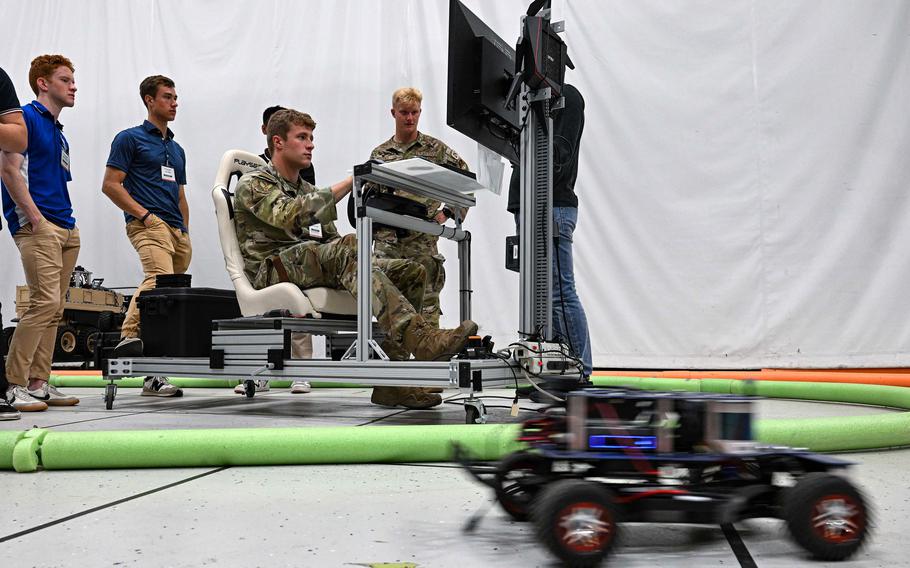
Cadets with U.S. Special Operations Command’s Ignite Program learn about drones at the Autonomous Systems Development Facility, Hanscom Air Force Base, Mass., Sept. 19, 2024. SOCOM is starting a new job field this year to better capitalize on the skills of tech-oriented recruits. (Marleah Miller/U.S. Air Force)
U.S. Special Operations Command is paving the way for a new military specialty aimed at getting more tech-savvy recruits into jobs that will help commandos put emerging technology to use on the battlefield, Army officials said.
SOCOM is partnered with the military’s service academies and more than a dozen other colleges to create a “talent pipeline” for future officers, the command said in a recent statement.
In late September, SOCOM brought together 94 cadets to take part in its “Ignite Program,” where they worked on solutions for problems special operators are likely to encounter in conflict zones.
Command Sgt. Maj. JoAnn Naumann, the senior enlisted leader for U.S. Army Special Operations Command, told the cadets during launch of the event on Sept. 19 that a tech-oriented job field was in the works.
“Special operations is leading the Army by creating a new (military occupational specialty) this year for technology, innovation and integration – a new MOS that does not exist in the Army,” she said in a statement.
During the SOCOM event, the cadets grappled with big data analytics, smart sensors, swarming drones and artificial intelligence. They focused on figuring out how to help special operators generate actionable intelligence from battlefield sensors, SOCOM said.
Such efforts coincide with Pentagon concerns about keeping pace with rapid technological innovations expected to transform how forces will fight in future wars.
Retired Gen. Mark Milley, the former chairman of the Joint Chiefs of Staff, said during a security conference in July that he expected robots and other smart machinery to represent about one-third of the U.S. military over the next 10 to 15 years.
“It’ll be a fundamental change, and I would argue that other nations’ militaries are going to be similarly designed …,” Milley said during the event hosted by Axios. “The country that optimizes those technologies for military use is going to have a very significant — and potentially decisive — advantage in an armed conflict.”
Naumann said a high-tech career field is needed to address such issues.
“We will have people whose job is to think about these kinds of problems, build prototypes and then help us once we get the technology integrated into the battlefield and make it work in real-world scenarios,” she said.
Army 2nd Lt. Katrina Thoms, who participated in one of SOCOM’s Ignite events, said the new job field will open doors for people interested in special operations in ways other than the rugged field work such units are known for.
“This gives a new pathway and a new job opportunity for people who are really good at technology, and not just the gung-ho, ‘let’s be in the field,’ type of people,” Thoms said.